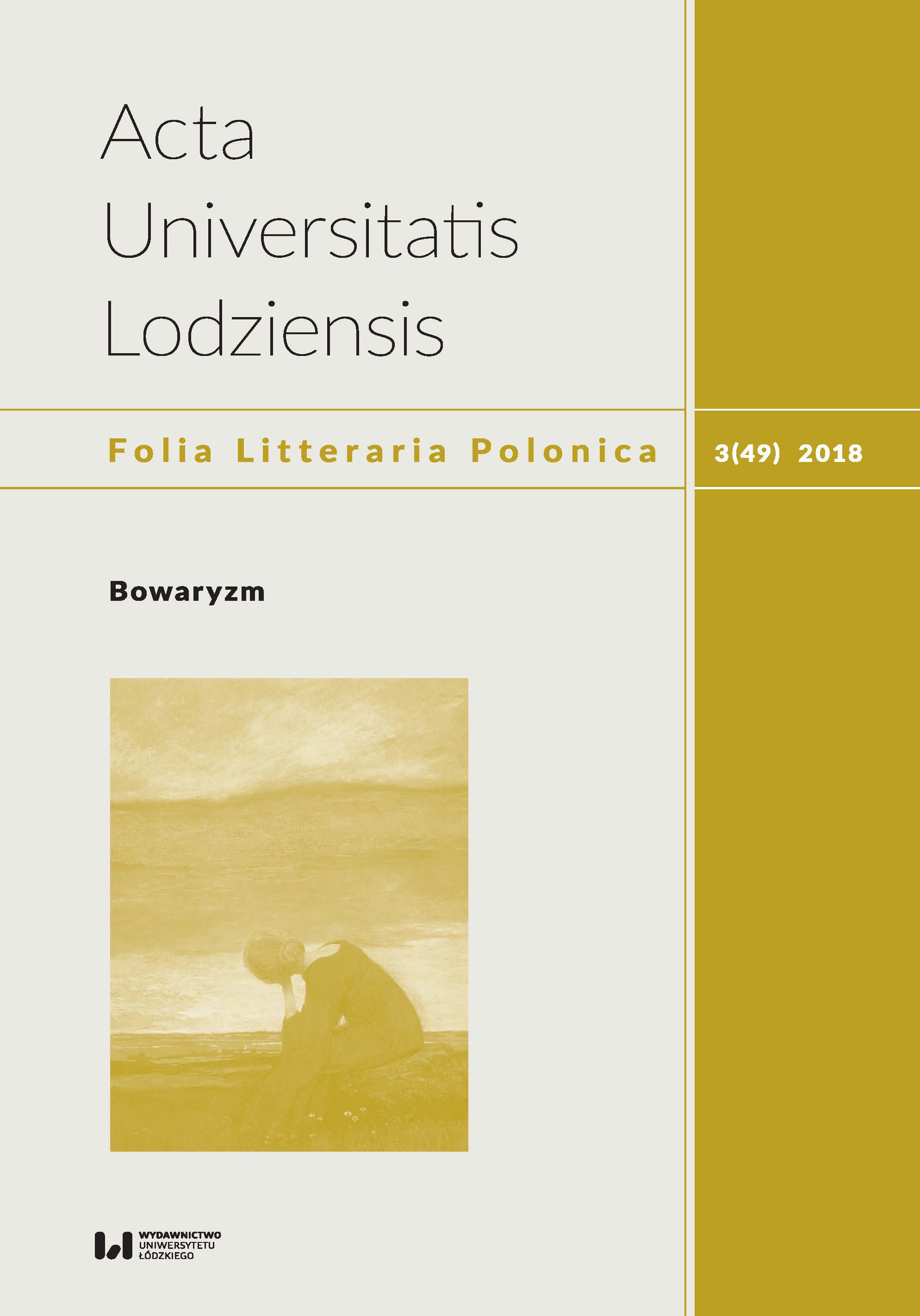„Pociągający” urok odległego świata – wybrane motywy w powieściach „Córka pastora” i „Żona pastora” fińskiego prozaika Juhaniego Aho
DOI:
https://doi.org/10.18778/1505-9057.49.10Słowa kluczowe:
Juhani Aho, finnish realism, finnish Lutheranism, Pastor, novel, bovarismAbstrakt
This article shows the issues of the place and the social role of the women in Finland of on the basis of the two Finnish classical, realistic 19th century novels: Pastor’s daughter and Pastor’s wife. Juhani Aho joins the discussion through his literary output. Being a pastor’s son, he chooses the characters for his deep analysis from his social group. In the latter one, Aho is referring to psychological trend emerging in Finland. The plot of both novels is set in the group of Finnish intelligence that, on the one hand, is represented by pastors from the small village parishes and, on the other hand, by the theology student from Helsinki. His stay in pastor’s house in the country and his unconventional behaviour can ruin the social order, which used to be accepted as the norm. The author focuses on the figure of a woman – the daughter, who is the eponymous character, and afterwards on the pastor’s wife, who is restricted by etiquette, feels the deep sorrow of her existence and attempts to compensate for her life in the pastor’s house by building her deeply hidden inner world. This world of idealized romantic dreams and unfulfilled desire to live in spiritually richer dimension causes –due to the reality around her –her permanent state of depression and frustration –in both emotional and social aspects. She is unable to change anything in her life, though the fate in the form of a student seems to offer her the chance.
Pobrania
Bibliografia
A History of Finland’s Literature, red. George C. Schoolfield. Nebraska/London 1998.
Google Scholar
Aho Juhani, Papin tytär, WSOY, Helsinki 1998.
Google Scholar
Aho Juhani, Papin rouva, WSOY, Helsinki 1998.
Google Scholar
Ahokas Jaakko, A History of Finnish Literature, Indiana University, Bloomington 1983.
Google Scholar
Cieślak Tadeusz, Historia Finlandii, Ossolineum, Wrocław 1983.
Google Scholar
Eljas Erkko, Juhani Aho, Papin rouva, w: ”Valvoja-lehti”, Helsinki 1886, s. 196.
Google Scholar
Heikinheimo Ilmari, Suomen elämäkerrasto, WSOY, Porvoo 1955.
Google Scholar
Hein Manfred Peter, Moderne Erzähler der Welt: Finnland, Horst Erdmann-Verlag, Tübingen und Basel 1974.
Google Scholar
Järnefelt Arvid, Vanhempieni romaani, WSOY, Helsinki 1992.
Google Scholar
Karhu Eino H., Istorija finskoj litieratury, Leningrad 1979.
Google Scholar
Klinge Matti, Fińska tradycja, przekł. Jarosław Suchoples, Oficyna Wydawnicza ATUT, Wrocław 2006.
Google Scholar
Kopponen Tapio, Järnefeltin koulu. Tutkimus Elisabeth Järnefeltin ylioppilassalongin ja kirjallisen koulun synnystä, tehtävästä ja merkityksestä, Lissensiaattitutkielma Helsingin yliopistossa, Helsinki 1975.
Google Scholar
Koskimies Rafael, Kymmenen tutkielma Ahosta, Suomen Kirjallisuuden Seura, Forssa 1975.
Google Scholar
Laitinen Kai, Finnlands moderne Literatur, przekł. C.-A. von Willebrand, Christoph von der Ropp, Hamburg 1969.
Google Scholar
Laitinen Kai, Suomen kirjallisuuden historia, Otava, Helsinki 1981.
Google Scholar
Molarius Päivi, Toteutumaton unelma onnesta – erään rakkauden anatomia, w: Aho Juhani, Papin tytär. Papin rouva, Pieksämäki 2000.
Google Scholar
Niemi Juhani, Juhani Aho, Suomalaisen Kirjallisuuden Seura, Helsinki 1985.
Google Scholar
Puntila Lauri Aadolf, Politische Geschichte Finnlands 1809–1977, Otava, Keuruu 1980.
Google Scholar
Räsäinen Tauno, Iisalmen kauppalan ja kaupungin historia 1860–1930, Kuopio 1959.
Google Scholar
Sarajas Annamari, Tunnuskuvia. Suomen ja Venäjän kirjallisen realismin kosketuskohtia, Porvoo 1968.
Google Scholar
Słownik pisarzy skandynawskich, red. Zenon Ciesielski, Warszawa 1991.
Google Scholar
Suomen kirjallisuus, t. 4, Otava, Keuruu 1965.
Google Scholar
Szordykowska Barbara, Historia Finlandii, Wydawnictwo Trio, Warszawa 2011.
Google Scholar
Tiitinen Ilpo, Impressionismi ja Juhani Aho. Mitat ja puntit, w: ”Tampereen yliopiston kotimaisen kirjallisuuden monistesarja 18”, Tampere 1980.
Google Scholar
Tiitinen Ilpo, Psykoanalyysin tulo Suomeen, Helsinki 1977.
Google Scholar
Vilkuna Kustaa, Vuotuinen ajantieto, Otava, wyd. 3, Keuruu 1973.
Google Scholar
Pobrania
Opublikowane
Jak cytować
Numer
Dział
Licencja

Utwór dostępny jest na licencji Creative Commons Uznanie autorstwa – Użycie niekomercyjne – Bez utworów zależnych 4.0 Międzynarodowe.











